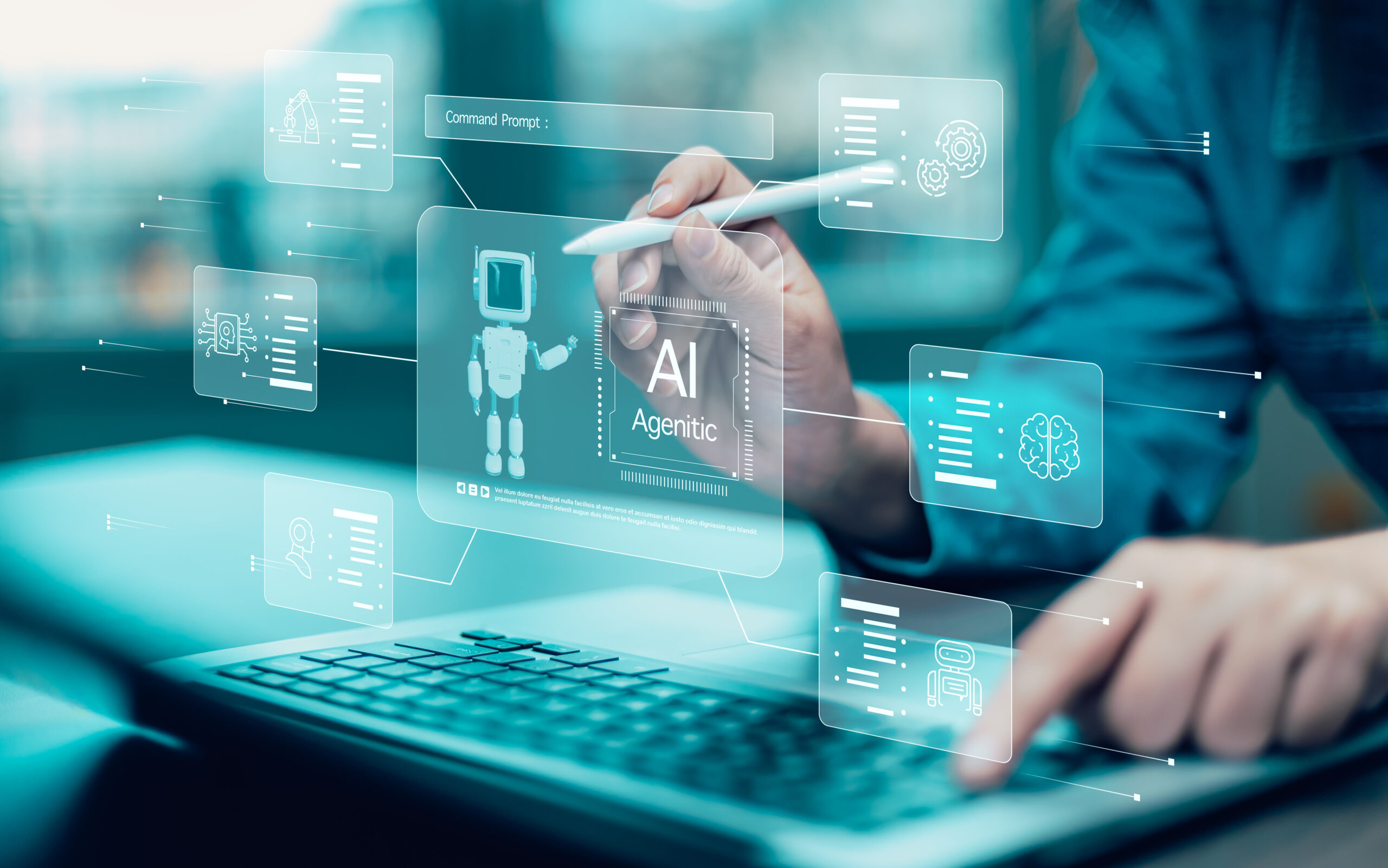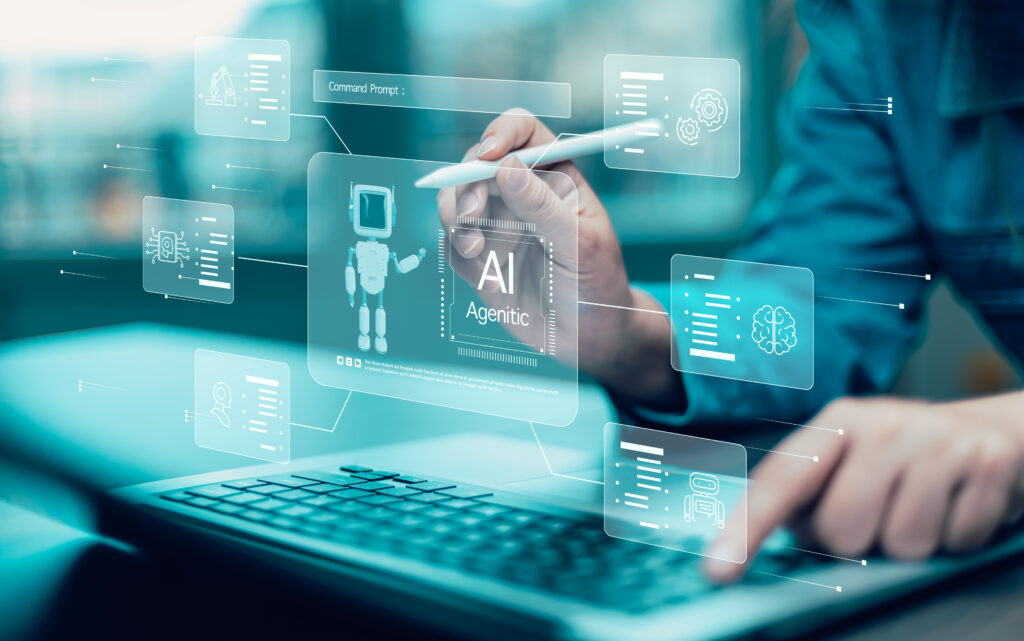In 2025, businesses are facing a crossroads. For years, chatbots promised to revolutionize customer service and citizen engagement, but most people quickly discovered their limits. If you’ve ever shouted “talk to a real person!” at a chatbot that didn’t understand your request, you know the frustration.
Now, a new generation of AI agents is changing the game. They don’t just spit out canned responses; they adapt, integrate, and actually solve problems. The difference between a traditional chatbot and an AI agent is more than just buzzwords. For small and mid-sized businesses (SMBs) and municipalities, this difference can mean lower costs, happier customers, and more intelligent scaling.
At Human Computing, we handle both and can help you understand both options to make a decision that is right for your business. So, let’s break it down.
What Is a Chatbot?

A chatbot is a software application designed to simulate conversation with users, typically through text or voice interactions. Most traditional chatbots are rule-based, meaning they follow predefined scripts and respond to keywords or simple commands.
For example, if you type “reset password”, the chatbot recognizes the keyword and sends back a scripted response like “Click here to reset your password.”
While chatbots can handle basic, repetitive questions (like FAQs or order status checks), they are limited. They don’t truly “understand” context, can’t adapt outside their scripts, and often frustrate users when questions fall outside of their programmed rules.
Traditional chatbots became popular in the late 2010s because they provided instant, 24/7 responses. At their core, they’re rule-based systems that follow predefined scripts.
Sounds simple enough, right? The problem is that life doesn’t fit neatly into scripts. Customers ask in different ways (“Can’t log in,” “Forgot my login,” “Help with account”), and traditional chatbots struggle to keep up.
This leads to:
- Frustrated customers who don’t get their needs met.
- Employees picking up the slack, defeating the purpose of automation.
- Lost opportunities because the bot couldn’t handle nuance.
In short, chatbots are reactive, rigid, and limited.
What Is an AI Agent? (And How It Differs From A Chatbot)

An AI agent is an adaptive digital teammate. It combines generative AI with integrations so it can understand context and perform tasks across your stack.
What an AI agent can do:
- Understand context and intent, not just keywords.
- Pull data from your existing systems (like CRMs, ticketing, knowledge bases, or municipal databases).
- Adjust and learn over time based on new interactions.
- Be customized to specific use cases, whether that’s customer service, internal operations, or citizen engagement.
- Use human-in-the-loop approvals for higher-risk level actions (refunds, PII updates).
Mini-workflow examples:
- A resident asks a city’s AI agent: “When is recycling pickup this week?”
- The AI agent checks the local database, sees the holiday schedule, and gives the correct day.
- A customer messages an SMB: “Can I change my order?”
- The AI agent connects with the order system, confirms the request, and processes the change instantly.
That’s not just automation, it’s augmentation.
What Are The Key Differences Between Chatbots vs AI Agents?
Here’s a side-by-side view:
| Feature | Chatbot | AI Agent |
| Response Style | Scripted, rule-based | Context-aware, generative |
| Flexibility | Limited to pre-programmed paths | Adapts to new requests |
| Integration | Minimal | Deep integrations with systems |
| Learning Ability | Static | Improves with time |
| Customer Experience | Often frustrating | Feels natural and helpful |
Result: AI agents don’t just answer questions; they get things done.
When Should You Use a Chatbot vs. an AI Agent?
Use a chatbot when your needs are simple, predictable, and repetitive. Chatbots are great for answering FAQs, handling routine requests like password resets, checking order status, or guiding users through a standard process. If your customer interactions don’t require much personalization or decision-making, a chatbot is cost-effective and easy to deploy.
Use an AI agent when you need flexibility, personalization, and deeper problem-solving. Unlike chatbots, AI agents can understand natural language, learn from past interactions, and adapt to new situations. They can handle complex conversations (like troubleshooting tech issues, engaging citizens in government services, or supporting employees with HR queries), integrate with your business systems, and continuously improve over time.
In short:
- Chatbot = Simple, scripted tasks.
- AI agent = Smarter, adaptive support for complex or evolving needs.
Why the Difference Matters for SMBs and Municipalities
For large corporations, the inefficiencies of chatbots may be an inconvenience. But for SMBs and municipalities, where every customer counts and every dollar matters, the stakes are higher.
Here’s why AI agents are a game-changer:
- Lower Costs: By automating repetitive tasks, AI agents reduce the need for expanding staff while still improving service.
- Faster Service: Customers and citizens get answers right away, even for complex requests.
- Happier Users: A smooth interaction builds trust and loyalty.
- Scalable Growth: As your business or city grows, AI agents scale effortlessly without requiring a massive team.
Common Questions (FAQ)
When businesses first hear about AI agents, they often have concerns. Let’s tackle the big ones:
- Are AI agents expensive?
Not anymore. With tools like Human Computing’s AI Agents, deployment is cost-effective for SMBs, not just enterprise giants. - How fast can businesses deploy AI agents?
Weeks, not months. Pre-built templates mean you don’t have to start from scratch. - Can AI agents integrate with systems?
Yes. AI agents connect with existing CRMs, ticketing systems, and databases. - Will AI agents replace human workers?
No. Think of AI agents as digital teammates. They handle the repetitive tasks, freeing humans for higher-value work.
How Can AI Agents Solve Problems For SMBs?
Chatbots belong to the past. AI agents are the future.
With AI agents, businesses get an assistant that scales, adapts, and actually improves customer and citizen engagement. It’s time to leave the frustration of rigid scripts behind.
At Human Computing, we have built a library of generative AI-powered assistants tailored for customer service, operations, and citizen engagement.
With our tool, you can:
- Deploy fast with pre-built AI agents.
- Customize easily for your unique workflows.
- Integrate seamlessly with your current systems.
Discover Human Computing’s AI Agents today and see how easy it is to work smarter, engage faster, and grow without adding headcount.
Whether you’re an SMB wanting to scale without hiring more staff, or a municipality aiming to serve citizens better, our AI agents are designed for real-world results.







